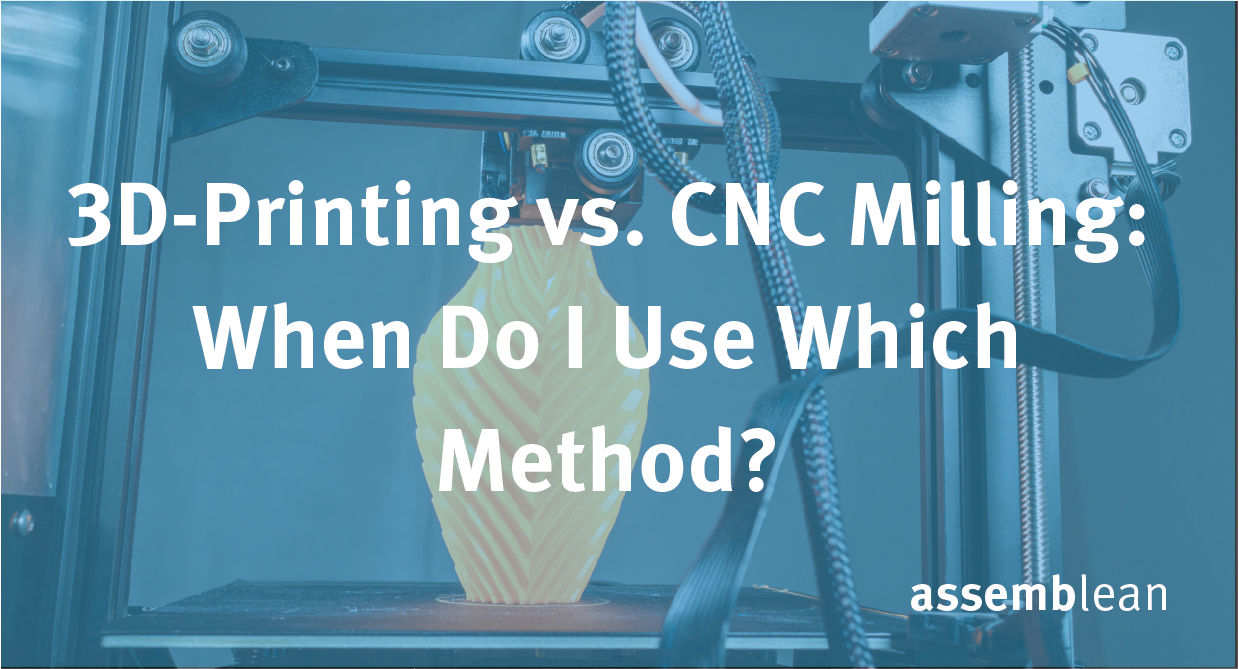This article shows you how to efficiently evaluate potential suppliers, build strategic partnerships and avoid typical problems. As an experienced production service provider with a broad supplier network and our own production facilities, we can support you in mastering these challenges and future-proofing your supply chains.
1. Why choosing the right supplier is essential
Choosing suppliers is more than just a question of price. The right partners can help your company to drive innovation, reduce costs and improve the quality of your products.Risks of poor suppliers:
- Quality defects: poor materials or inadequate manufacturing processes can lead to defective products.
- Unreliable delivery times: Delays in the supply chain can hamper overall production.
- High failure rates: Defective products lead to complaints, returns and a bad reputation.
- Cost efficiency: Optimized production processes and economies of scale reduce your overall costs.
- Innovation potential: Technologically advanced suppliers can accelerate your product development.
- Scalability: Flexibility in production volumes and delivery terms facilitates your company's growth.

2. The 7 most important criteria for selecting suppliers
1. Quality standards and certifications
Quality is the cornerstone of any successful production. Make sure that potential suppliers have recognized certifications such as ISO 9001 or IATF 16949 (for the automotive industry). Our services are also ISO 9001 certified and guarantee systematic quality controls and continuous improvement processes.- Tip: Ask for internal test reports to verify quality standards.
2. Production capacity and scalability
A supplier must be able to not only meet your current requirements, but also grow with your business. Check:- Maximum production capacity
- Flexibility for peak demand
- Willingness to invest in new technologies
3. Technological expertise and innovation
Technology is a decisive competitive factor. Suppliers with modern equipment (e.g. CNC machining, assembly production, sheet metal processing) and their own R&D department often offer innovative solutions that can improve your products. This also distinguishes us as a production service provider with our own production facilities.4. Reliability and adherence to delivery dates
Delivery delays can have long-term consequences, especially in just-in-time production environments. Key indicators of reliability include- History of on-time deliveries
- Redundant capacity and contingency plans
- Crisis management strategies
5. Cost structures and price transparency
The lowest price is not always the most economical. Consider the total cost of ownership (TCO), which also includes factors such as logistics, quality assurance and warehousing. Pay attention to:- Transparent calculations
- Fair contract terms
- Scope for negotiation
6. Location and supply chain management
Globalization opens up new opportunities, but also brings risks. It is important to weigh up between:- Local suppliers: Shorter delivery routes, faster response times
- International suppliers: Cheaper production costs, but higher transportation costs and potential customs problems
- Nearshoring: The middle way - cost benefits with fewer logistical risks
7. Communication and service orientation
Effective communication is the foundation of every partnership. Pay attention to:- Response times for inquiries
- Technical support and consulting expertise
- After-sales services and complaint management

3. The selection process: how to proceed strategically
With a structured selection process, you minimize risks and ensure that you find the best possible partner:- Step 1: Needs analysis
- What are your technical requirements?
- What capacities do you need?
- Step 2: Research and pre-selection
- Supplier portals (e.g. Wer liefert was, Alibaba)
- Trade fairs and industry networks
- Recommendations from industry colleagues
- Step 3: Supplier evaluation
- Use of scorecards to evaluate quality standards, prices, flexibility and innovation potential
- Step 4: Audit and test production
- Carry out on-site audits to check production processes
- Test orders to check quality and adherence to delivery dates
- Step 5: Contract negotiation and supplier development
- Negotiate fair contract terms (delivery terms, guarantees, escalation processes)
- Establish long-term development partnerships
4. Common mistakes in supplier selection
Many companies make similar mistakes that can easily be avoided:- Relying on the cheapest supplier: Price is important, but quality and reliability are critical.
- Lack of regular review: Even long-term suppliers should be evaluated regularly.
- Inadequate contract drafting: Vague contracts often lead to misunderstandings and conflicts.
- Underestimating cultural differences: Cultural communication differences are a common stumbling block with international suppliers. You can avoid communication problems by working with partners like us. We can act as an interface between international suppliers and you.
5. Our added value as your production service provider
We are not just a production service provider - we see ourselves as your strategic partner. Our strengths:- Global supplier network: We select suppliers for you from an international network of reliable suppliers for maximum flexibility and security of supply.
- Flexibility: Depending on your request, we can manufacture everything from prototypes to series production for you.
- Quality management: Thanks to our in-house quality assurance, we can test every part we deliver as required.
- In-house production facilities: With our own production facilities, we can realize your ideas using all manufacturing processes, such as die casting or injection moulding.
6. Conclusion
Choosing the right supplier is a crucial factor for the long-term success of start-ups and SMEs in the mechanical engineering sector. Strategic selection and continuous review will help you minimize risks and maximize growth opportunities. As your strategic partner, we can take over the supplier selection and help you realize your projects.Would you like to optimize your supply chain? Send us an inquiry - we will be happy to advise you.



